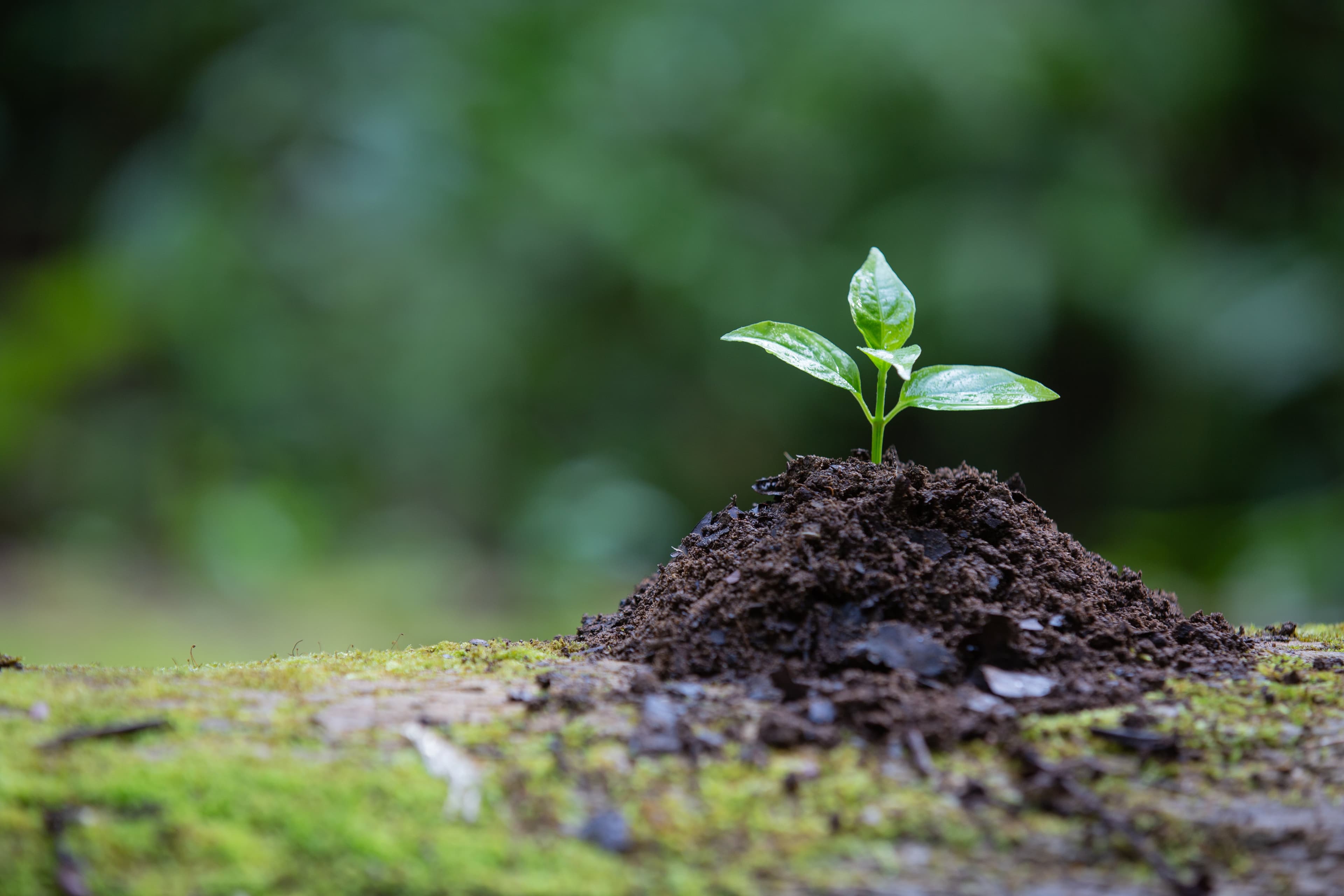
Advancing Green Technologies for a Sustainable Agriculture Future
At Nepal Bioscience Research Laboratory (NBRL), we harness the power of soil microbiomes to enhance plant health and agricultural sustainability, unlocking the natural potential of beneficial microorganisms through a research-driven approach that has transformed the practices of over 1 million farmers in Nepal.
What we offer
NBRL offers comprehensive solutions for agricultural sustainability, forest management, and environmental conservation. Our core services include:
Farm Management Systems
Implementing precision agriculture in soil fertility management, nutrient management (biotic and abiotic), and sustainable farming techniques to maximize productivity and soil health.
Product Development
Researching and formulating bio-based agricultural products, including biopesticides, biofertilizers, and biostimulants, derived from solutions addressing the most pressing agricultural issues.
Forest Biomass Management
Utilizing forest resources to develop carrier-based fertilizers and bioproducts, reducing environmental degradation and preventing forest fires.
Climate Resilience Implementation
Deploying climate-smart technologies and regenerative farming solutions to enhance agricultural resilience against climate change.
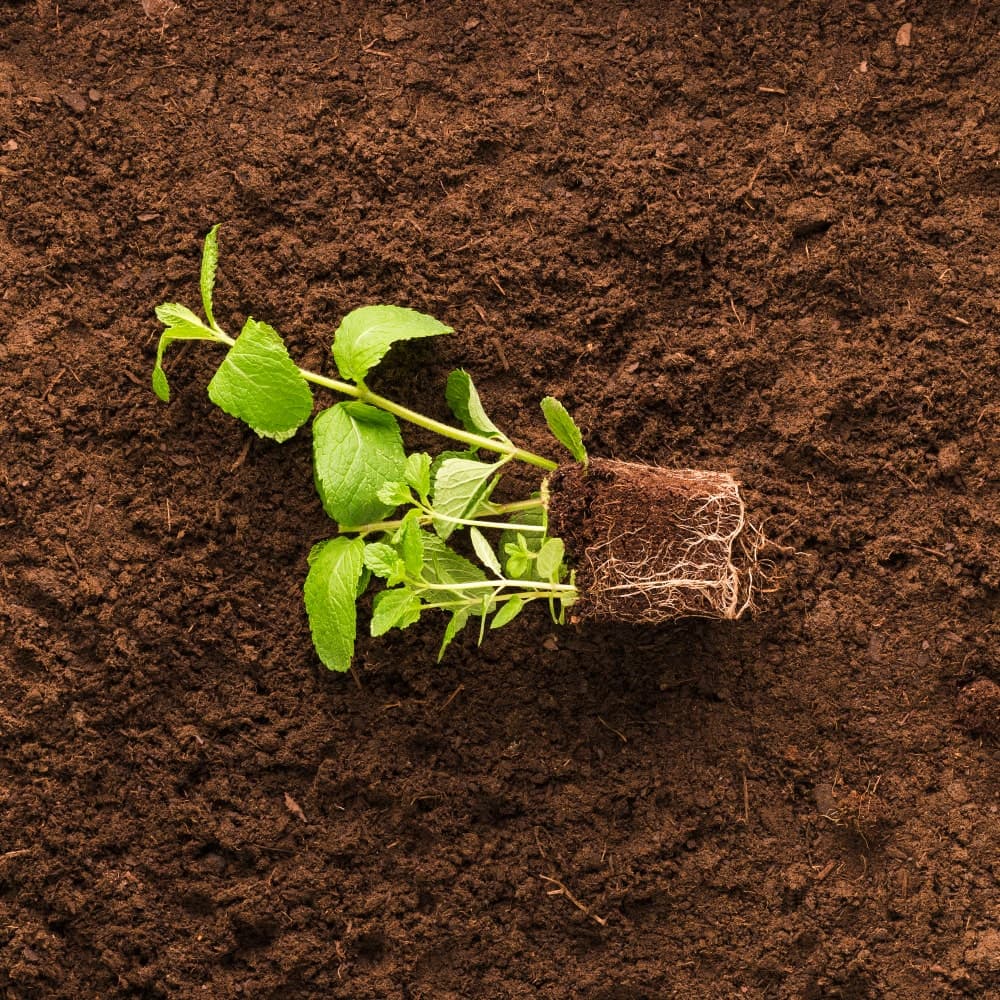
Vision
A healthy soil microbiome collaborates with a plant host and sustains itself through continuous biological restructuring and chemical deployment in response to biotic and abiotic challenges. The soil microbiome is a complex system with an inherent ability to produce a diverse range of beneficial compounds.
As a dynamic and evolving system, a healthy soil microbiome possesses an "emergent biosynthesis capacity", which allows it to counteract environmental stressors by generating multi-mechanistic biochemical responses. At NBRL, we adopt a systems-level approach to understanding soil microbial communities, enhancing their natural potential to promote plant and soil health sustainably.
Pioneering Science for Sustainable Solutions
NBRL is actively engaged in multiple research and development initiatives, including:
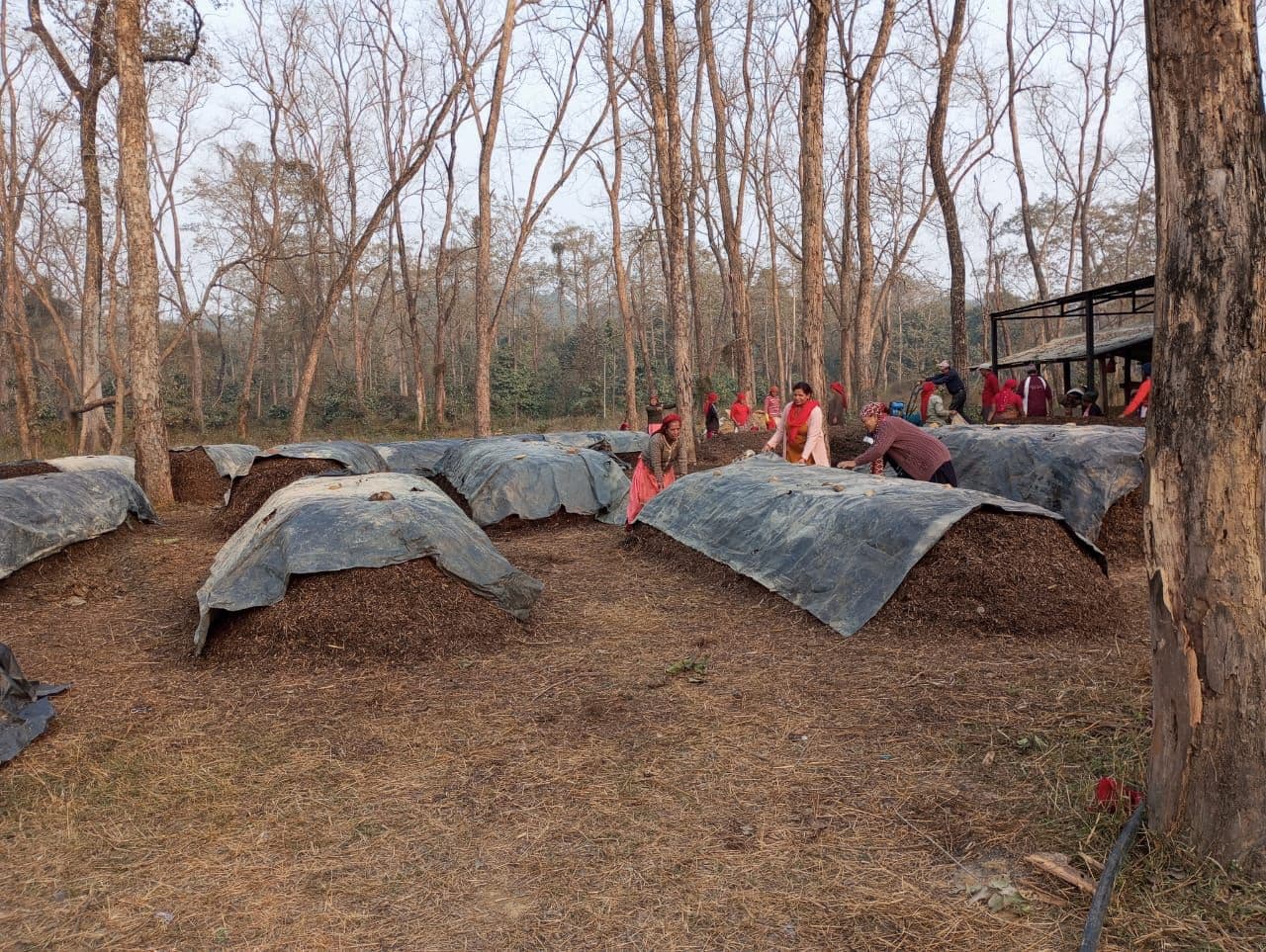
Forest Biomass Management and Agricultural Sustainability
Biofertilizer development using Agriculturally Beneficial Indigenous Microorganisms coupled with organic waste and forest biomass management.
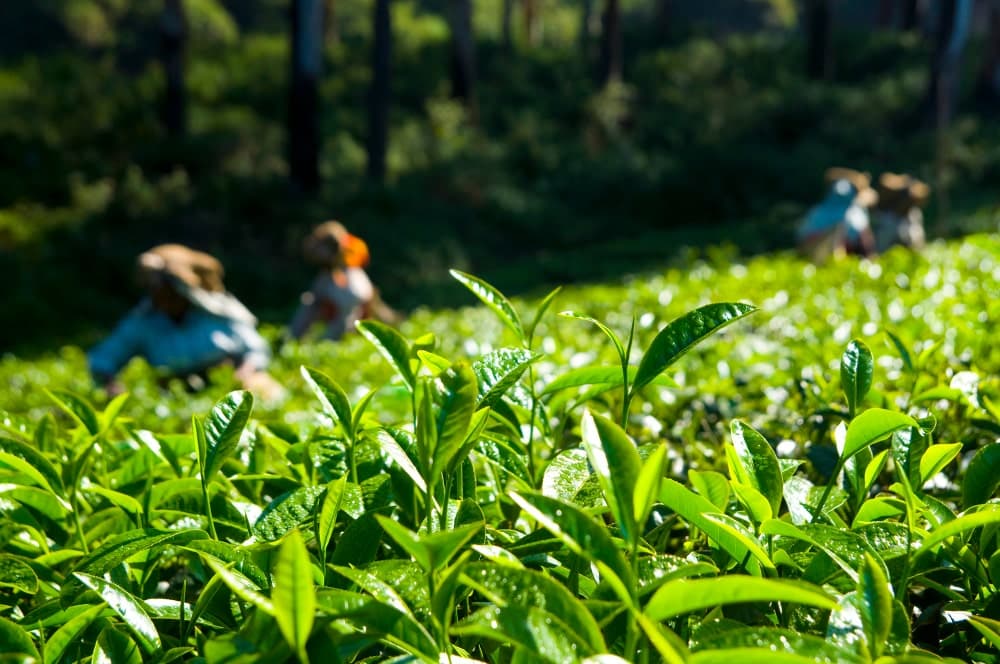
Tea Farming Solutions
Developing carrier-based biofertilizers, insecticides, and fungicides for tea cultivation.

Organic Farming Transition Program
Providing resources and education for farmers to adopt sustainable agricultural practices.
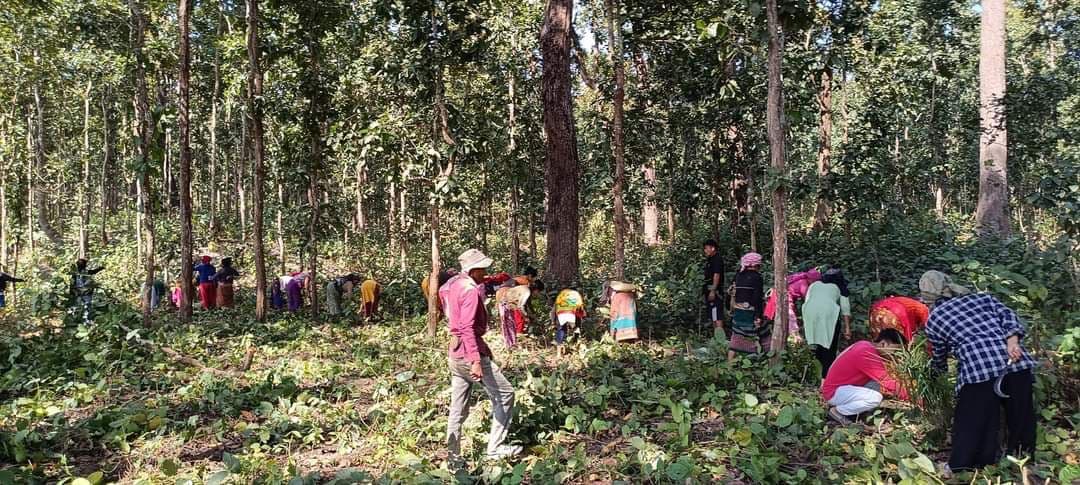
Forest Fire Mitigation and Biomass Utilization
Implementing solutions to reduce forest fire risks in Gandaki Province and promoting biomass-based agricultural inputs.
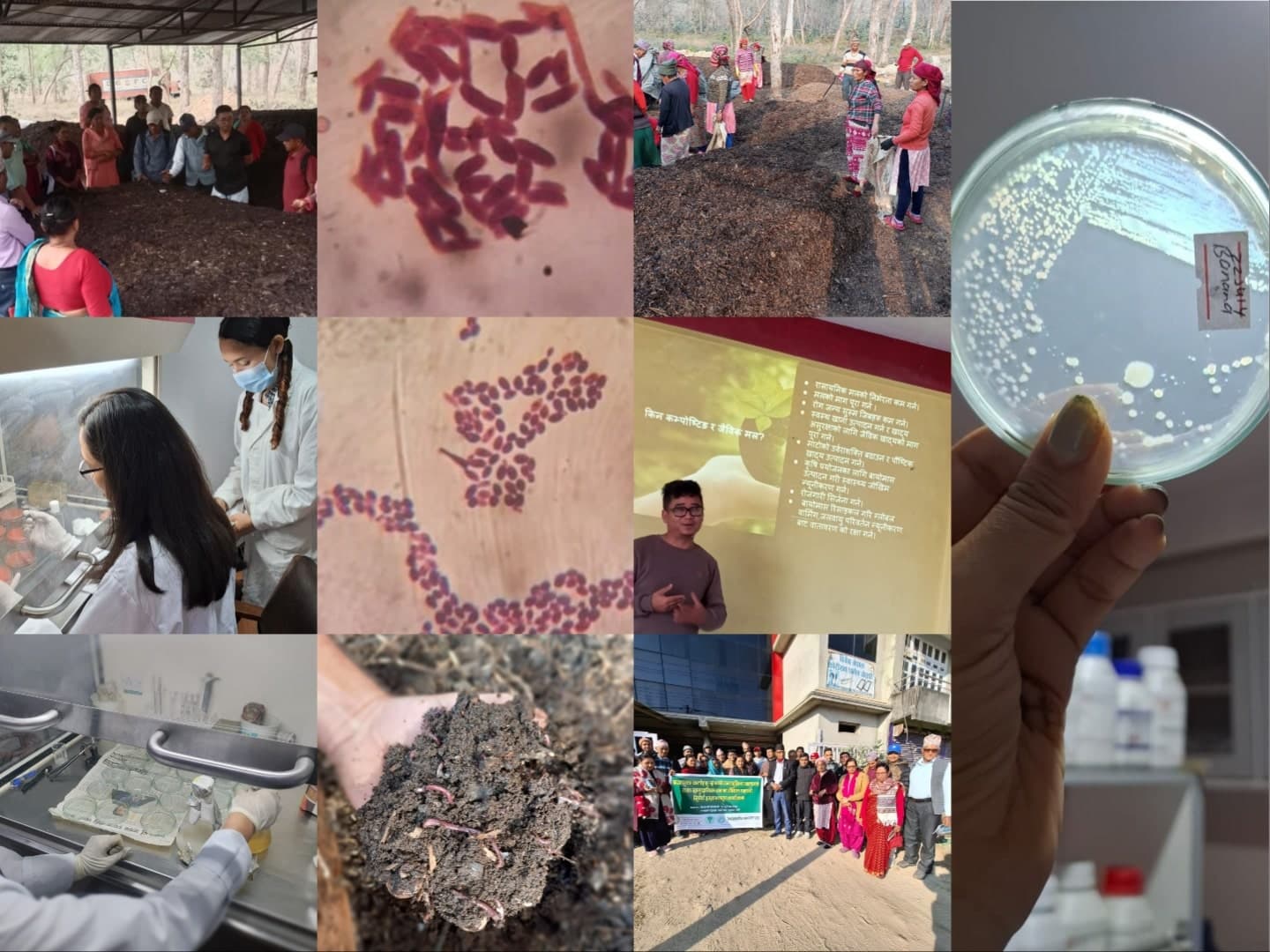
Transforming Agriculture Through Climate-Smart Innovation
Nepal Bioscience Research Laboratory (NBRL), founded in 2018 by Dr. Pooja Manandhar and Env. Er Arun Lama , is a leading center for climate-resilient innovation and research. Dr. Manandhar, a microbiologist with a PhD in Microbial Ecology, and Er Lama, an environmental scientist with a Master’s from Tsinghua University, have made significant academic contributions, including three key discoveries on the Tibetan Plateau.
In Nepal, they pioneered the use of native agriculturally beneficial microorganisms to boost soil fertility and crop productivity, benefiting over 1 million farmers. Their work has earned international recognition for advancing sustainable agriculture and environmental conservation. Under their leadership, NBRL has also reduced forest fires and improved forest biomass management in Gandaki Province.
Innovating Solutions for Sustainable Agriculture
Our research and development efforts focus on creating bio-based solutions to address major agricultural challenges. Our portfolio includes:
Biopesticides (Microbial/Plant-Based Bioactive Compounds)
Natural solutions targeting harmful pests while preserving beneficial organisms, utilizing bioactive compounds likeAzadirachtin, Allicin, Alloin, Cytokine, and more. Research focuses on combating invasive pests such asthrips, mites, aphids, and ants.
Waste Decomposers/ Odor Control Solutions
Eco-friendly approaches to managing waste and emissions in agricultural and industrial settings.
Biofertilizers (Native Agriculturally Beneficial Microorganisms-Based)
Enriched with agriculturally beneficial microbes to improve soil health and crop productivity, specifically for tea (Mistvalley Tea Industry, Ilam, Jitpur, Mustang Coffee), Janaki Agro and Tourism Industries, Bardibas, Binayi Community Forest, Biomadu Organic, Chandragiri.
Biofungicides (Biological/Plant-Based)
Natural solutions targeting harmful pests while preserving beneficial organisms, utilizing bioactive compounds likeAzadirachtin, Allicin, Alloin, Cytokine, and more. Research focuses on combating invasive pests such asthrips, mites, aphids, and ants.
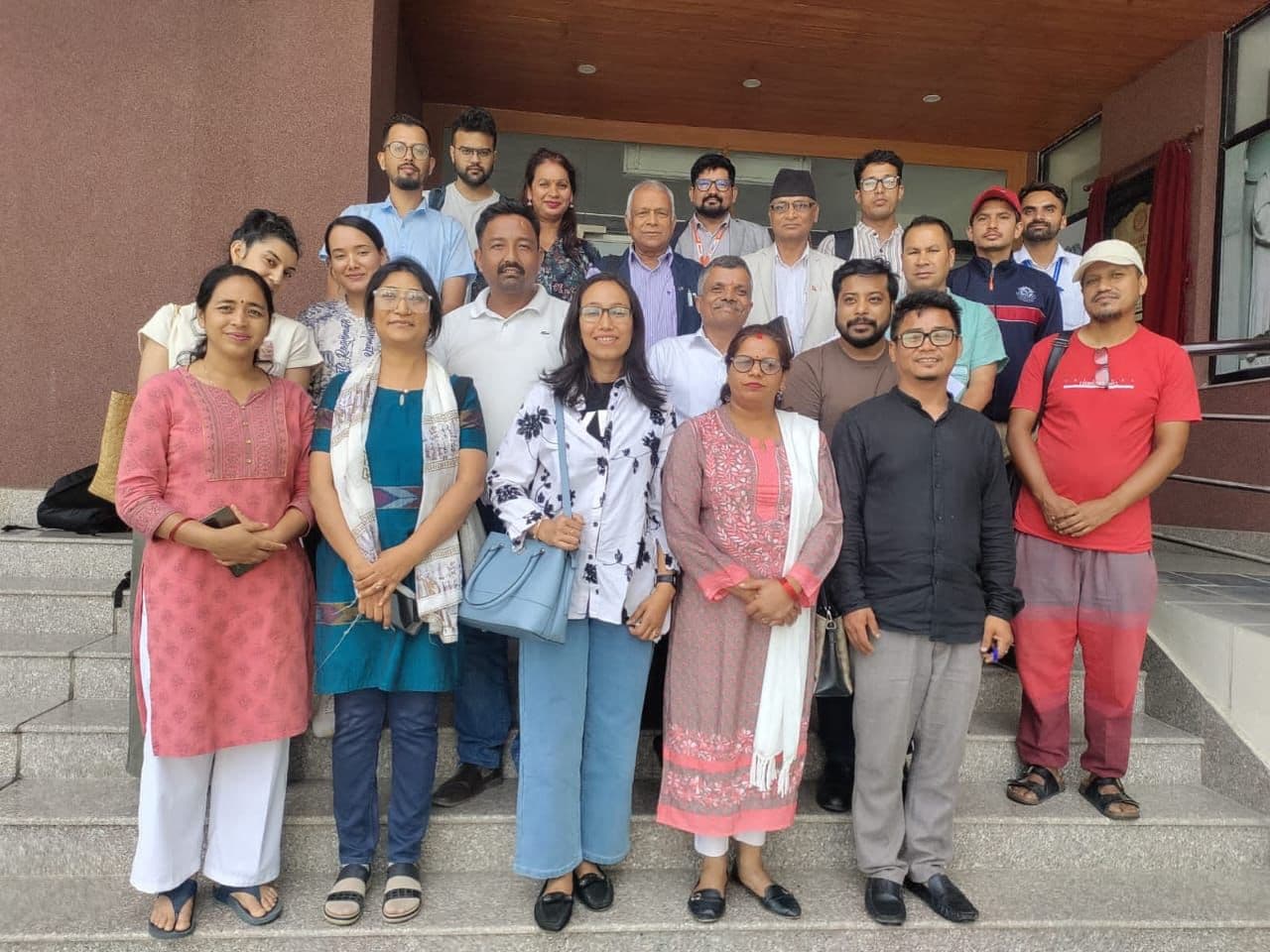
A Community-Wide Approach to Discovery
At NBRL, we focus on uncovering the complex interactions within microbial communities to develop sustainable solutions for agriculture, waste treatment, and microbial interactions. Instead of applying external interventions that disrupt natural ecosystems, our approach harnesses the flexibility and responsiveness of microbial populations to support farming practices naturally.
By integrating multi-omics analysis and advanced research methodologies, we encourage microbial communities to interact, restructure, and express a wide variety of beneficial microbial secondary metabolites (MSMs). Our platform maximizes microbial metagenomic potential, leading to the discovery of novel bioactive compounds that enhance plant resilience and soil fertility.
News And Blogs
Stay updated with the latest advancements, research breakthroughs, and industry insights from NBRL. Our blog covers topics related to soil microbiology, sustainable agriculture, and innovative bio-based solutions.
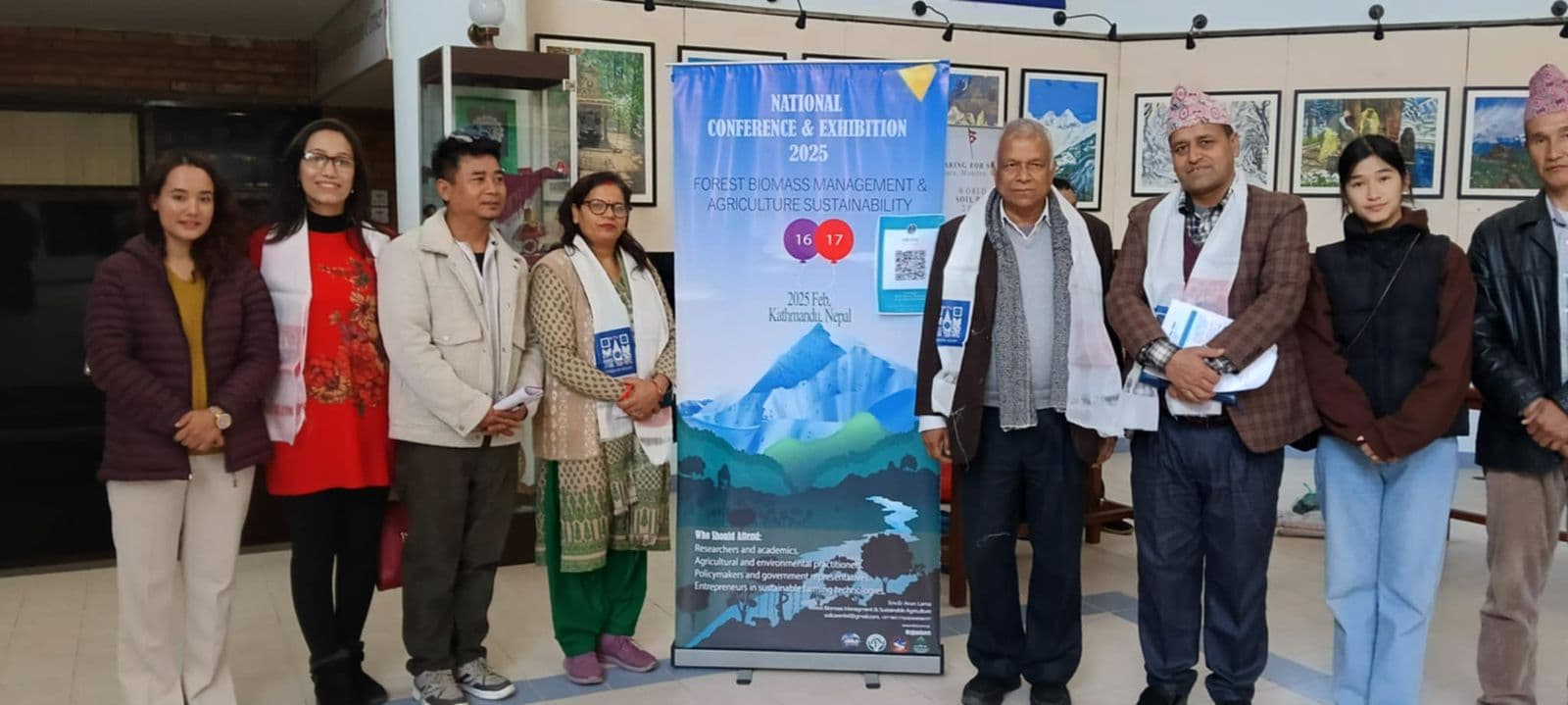
Conference Announcements
Forest Biomass Management and Agriculture Sustainability 2025 Join us for an exclusive conference where experts and stakeholders will discuss the role of forest biomass in mitigating environmental challenges and fulfilling the growing demand for natural fertilizers. This event will feature panel discussions, research presentations, and networking opportunities.
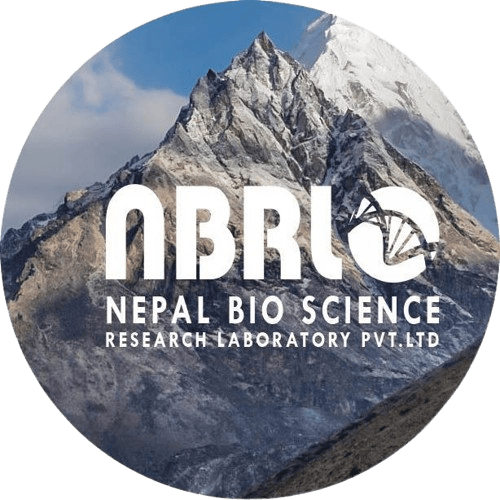
Stay in touch with NBRL as we collaborate with corporate partners to advance our products toward commercialization. We are actively engaged in laboratory, greenhouse, and field trials to validate our microbial solutions.
Quick Links
Get In Touch
- +977-9840559313
- Banasthli-16, Kathmandu, Nepal
- soilcarenbrl@gmail.com